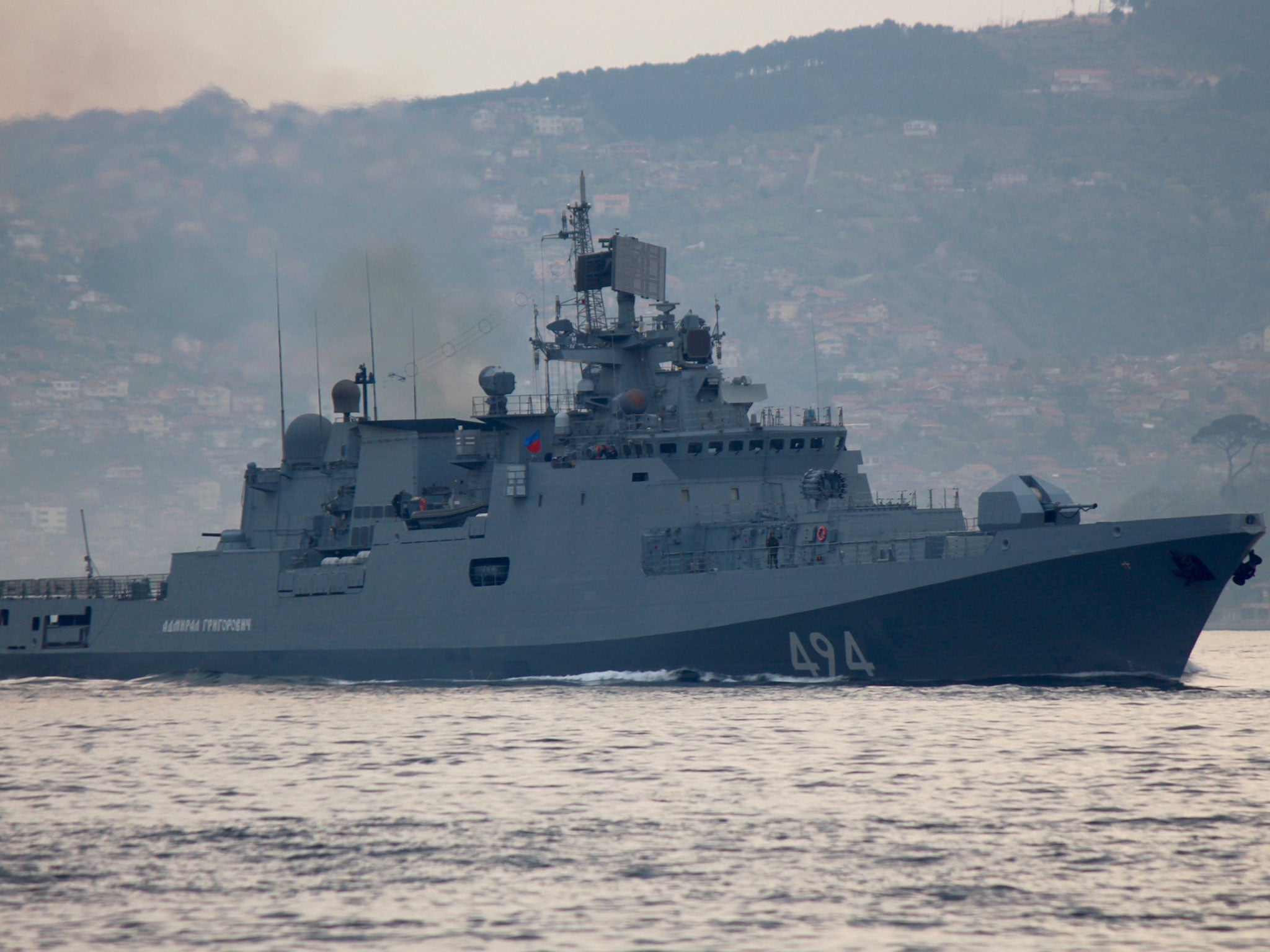Russian naval activity in Europe 'exceeds Cold War levels' says Nato admiral
'We're seeing activity that we didn't even see when it was the Soviet Union'

Your support helps us to tell the story
From reproductive rights to climate change to Big Tech, The Independent is on the ground when the story is developing. Whether it's investigating the financials of Elon Musk's pro-Trump PAC or producing our latest documentary, 'The A Word', which shines a light on the American women fighting for reproductive rights, we know how important it is to parse out the facts from the messaging.
At such a critical moment in US history, we need reporters on the ground. Your donation allows us to keep sending journalists to speak to both sides of the story.
The Independent is trusted by Americans across the entire political spectrum. And unlike many other quality news outlets, we choose not to lock Americans out of our reporting and analysis with paywalls. We believe quality journalism should be available to everyone, paid for by those who can afford it.
Your support makes all the difference.Russian naval activity in Europe now exceeds levels seen during the Cold War, a top US and Nato military officer has warned.
Navy Admiral Michelle Howard voiced concern the distributed nature of the deployments could end up "splitting and distracting" the transatlantic alliance.
"We're seeing activity that we didn't even see when it was the Soviet Union. It's precedential activity," the head of Nato's Allied Joint Force Command in Naples and commander of US naval forces in Europe and Africa told Reuters.
"They're a global navy, I understand that. But the activity in this theatre has substantially moved up in the last couple of years."
Last year, Russia deployed its only aircraft carrier, the Admiral Kuznetsov, to the Syrian coast to carry out bombing missions on rebel groups and Isis as Russian President Vladimir Putin propped up Syrian President Bashar al-Assad.
Then last week, it sent its Admiral Grigorovich warship to the Syrian port of Tartus, which houses a Russian naval base.
Ms Howard said Russia had also increased patrols in the north Atlantic and Arctic region, made significant out-of-area submarine deployments, and increased submarine movement in the Black Sea.
She said there was a danger members of the Nato alliance would focus on the area of interest closest to them, while losing sight of Russian activities in other areas.
Her comments mirror those of Russian Admiral Vladimir Korolev, who told state media Russia's submarine patrols have reached a level of operation not seen since the Cold War.
Ms Howard's comments came amid a sharp escalation in tensions between Russia and the United States after Washington launched 59 cruise missiles against an air base in Syria in retaliation for a deadly toxic gas attack that killed scores of people.
She said the Russian naval manoeuvres had been matched by increased persistent cyber attacks by Moscow, and a steady number of unprofessional "fly bys" by Russian aircraft of US and other allied vessels at sea.
Ties between Moscow and the West have been strained since Russia's annexation of the Crimea region of Ukraine in 2014 and its support for separatists in eastern Ukraine.
Nato has built up physical forces in Poland and the Baltic states to build up a deterrent and underscore the strength of the alliance, but US and European officials are also increasingly concerned about what they describe as Moscow's use of propaganda and cyber attacks to influence Western elections.
Russia denies Washington's claim Moscow sought to influence the US election, and views Nato's buildup of troops in Europe as a provocation.
Ms Howard said members of Nato had rallied to increase their capabilities and send a clear signal about the strength and resolve of the alliance.
She hailed a recent agreement by Germany and Norway to build new submarines together as a sign of increased cooperation and said she would welcome further efforts by European partners to pool resources.
Additional reporting by Reuters
Join our commenting forum
Join thought-provoking conversations, follow other Independent readers and see their replies
Comments